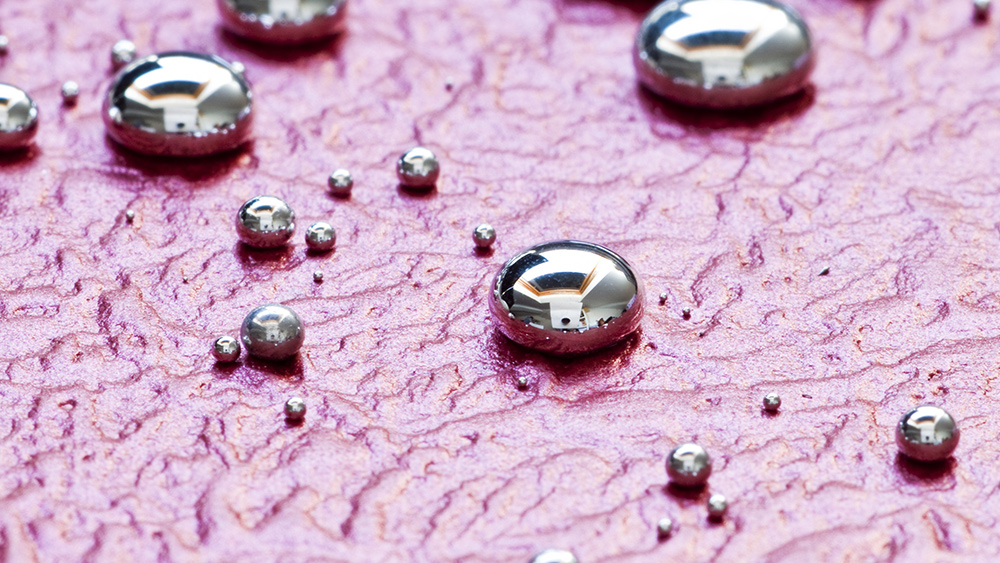Why are we ignoring the rise in male infertility?
04/27/2017 / By Frances Bloomfield

In a piece for FearlessParent.org, Pratik Chougule, Executive Editor of The American Conservative, says efforts to identify the cause of male infertility and promote any remedial therapies are absent on federal and state levels. Sperm density may be declining and infertility may be rising among American males. Although semen quality can be considered a “fundamental biomarker of overall male health,” there is little discussion concerning it, Chougule claims. He asserts that the lack of government involvement is due in part to an endocrine-disrupting chemical. BPA is a low-cost plastic additive that is toxic to the general population. A 2011 study published in the journal Fertility and Sterility has shown that BPA is particularly toxic to men, affecting them by lowering sperm concentration, sperm quality, and sperm motility. Though proven to be an unsafe chemical, the Food and Drug Administration (FDA) has yet to ban the use of BPA in a wide array of products.
According to sources of FastCompany.com, government officials with stakes in the BPA industry may have a hand in the deregulation. In a report by the Milwaukee Journal Sentinel, a scientist, Martin Philbert, who was supervising the FDA’s latest review had failed to disclose a $5 million donation from Charles Gelman, a retired medical device executive and staunch opponent of BPA control.
The industrial chemical BPA has just been cited as one of many causes of male infertility. Others include alcohol, fluoride, pesticides, and heavy metal, notes Chougule. (Related: Sperm counts continue to plummet, say researchers)
Alternative therapies as a solution to male infertility
There exist treatments for male infertility that, in spite of their efficacy, are frowned upon by the government and medical science. “Part of the reason may be that the most promising therapies for male infertility appear to be in the realm of alternative rather than allopathic medicine,” states Chougule.
Over the course of two decades, treatments such as acupuncture and moxibustion have been shown to increase sperm quality. Clinical studies have also demonstrated the potency of herbology in both male and female infertility cases. Under the Dietary Supplement Health and Education Act of 1994, however, it would be illegal to claim the supplements utilized in this practices “treat or prevent illness.”
Male infertility is seen as a symptom of systemic imbalances among alternative medical practitioners; they believe that asymmetry in the emotional and physical well-being among patients can bring about negative effects in the human body. A 2002 study has exposed a link between sperm quality and occupational psychological stress, psychological stress, and “potential reproductive toxic agents.”
By contrast, allopathic or mainstream medicine views male infertility as “an obstruction of the reproductive ductal system.” Correcting this can be done through insemination, in vitro fertilization or intracytoplasmic sperm injections, procedures that do not improve sperm quality or address the cause of sperm decline.
Where do we go from here?
It may be too soon to tell where the issue regarding male infertility will go. Under the current administration, it could go both ways. There have been moves to diminish the power the FDA has over chemical industries; on the other hand, this could also lead to the eventual reduction of industry influence on government investigations into male infertility. Whichever direction the government may take, it would be best to look to outside sources for possible treatments and more information on this issue.
You can learn more about medical and health issues by visiting MindBodyScience.news.
Sources include:
FearlessParent.org
NCBI.NLM.NIH.gov 1
NCBI.NLM.NIH.gov 2
FertStert.org
FastCompany.com
AccupunctureIVF.com.au
Tagged Under: bisphenol A, Bisphenol A (BPA), BPA, male infertility, sperm count, sperm quality




















